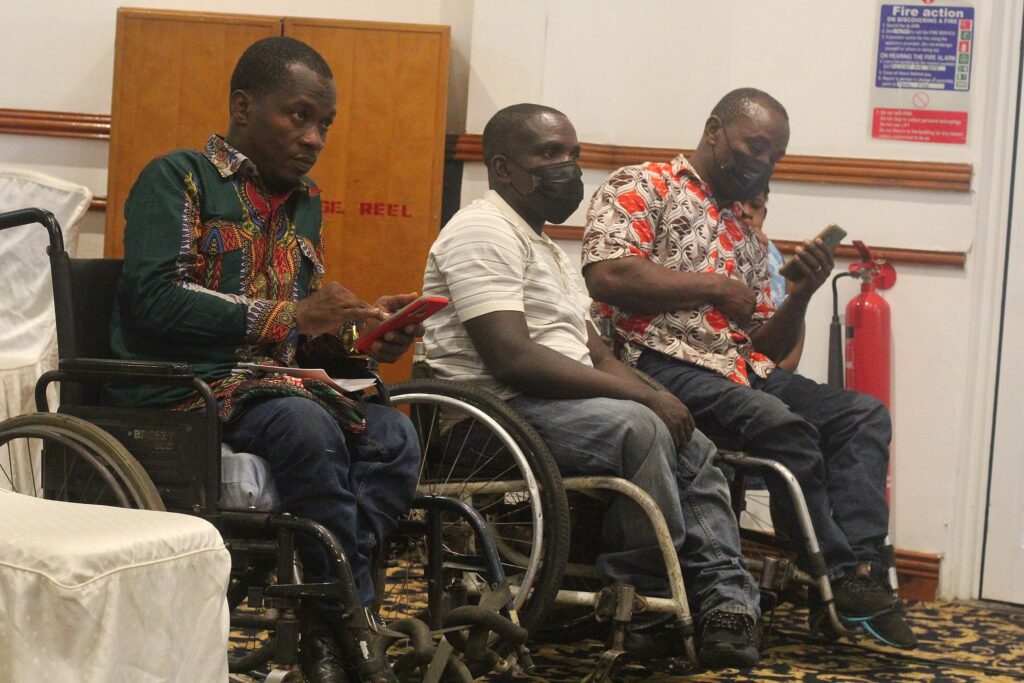
Sunday, December 3 is the International Day of Persons with Disabilities. Here are 10 stories you may have missed this year.
- Turkey and Syria experienced a catastrophic 7.8-magnitude earthquake in February. In its six-month update in August, the Red Cross reported “nearly 60,000 lives were lost, countless others were injured and millions of people were displaced from their homes.” An assessment by the Turkish government and the United Nations projected that 70 percent of survivors will have a disability. Within this context, human rights non-governmental organizations like Amnesty International have reported inadequate shelters and sanitation facilities. Also needed: specialist health services to respond to the humanitarian crisis which “will be felt for generations,” according to Nils Muižnieks, Amnesty’s Europe office director. Read Amnesty’s report here.
- In May, Mexico reformed its General Law for Women’s Access to a Life Free of Violence, requiring the state’s centros de justicia para las mujeres (women’s justice centers) and domestic violence shelters be made accessible to women with disabilities. This entails, among other things, “providing personal assistants to help women with disabilities do basic tasks like get out of bed, use toilets, and perform other daily life activities, enabling them to use the facilities on an equal basis with others.”
- Despite documented severe mental disabilities, Johnny Johnson was executed in the U.S. state of Missouri for the 2002 murder of six-year-old Casey Williamson. In a 6-3 decision on August 1, the Supreme Court refused a stay on the execution and Johnson was killed later that day. Justice Sonia Sotomayor, in a dissenting opinion joined by Justices Elena Kagan and Ketanji Brown Jackson, wrote, “The Court today paves the way to execute a man with documented mental illness before any court meaningfully investigates his competency to be executed … He deserves a hearing where a court can finally determine whether his execution violates the Eighth Amendment. Instead, this Court rushes to finality, bypassing fundamental procedural and substantive protections.”
- Australia’s Royal Commission into Violence, Abuse, Neglect, and Exploitation of People with Disability concluded a multi-year investigation in October. One human rights group called this a “watershed moment” for Australia’s 4.4 million people living with disabilities. The commission’s voluminous report, based on 9,000 testimonials and more than 30 public hearings, discusses segregation of children and adults with disabilities from society; condemns the use of isolation and seclusion, including solitary confinement, for individuals with disabilities in detention; and details discrimination and abuses against First Nations people with disabilities, in education, health, and family life. The complete report is available here.
- A November Human Rights Watch report on prisoner abuse in Japan recommended improved services for prisoners with disabilities and better training for prison staff. Another recommendation: ban the use of solitary confinement for prisoners with psychosocial disabilities. Read the report here.
- Solitary confinement has also come under scrutiny in Iceland. Amnesty International documents the practice in pre-trial detention and for juvenile prisoners and prisoners with disabilities. Simon Crowther, a legal adviser for Amnesty, said, “Icelandic authorities have been aware of the harms that solitary confinement causes, and their overuse of it, for years. Yet still, every year on average over 80 people, including children and some people with intellectual disabilities, are locked in cells alone for over 22 hours per day … Iceland is violating the prohibition of torture and other ill-treatment, during its chairmanship of the body responsible for preventing and eradicating torture in Europe. It urgently needs to make significant changes to prevent it.” Read Amnesty’s report here.
- A recent article in Nature Medicine illustrates the long reach of long covid, which is associated with an increase in disability-adjusted life years (DALYs). That’s “the loss of the equivalent of one year of full health.”
- Azerbaijan’s blockade of Nagorno-Karabakh prompted many of the 120,000 ethnic Armenians to flee – but also created a health crisis with acute consequences for persons with disabilities. Amnesty International has observed the lack of many essential medicines for chronic conditions and the limited access to health services. Individuals with limited mobility are also suffering from the negative mental health impacts of isolation.
- Don’t miss this moving recap of the Special Olympics World Games hosted in Berlin, Germany from July 17 to 25. (I was fortunate enough to attend the opening ceremony and some of the competitions.)
- The United Nations Convention on the Rights of Persons with Disabilities turns 17 on December 13. The convention was modeled after the Americans with Disabilities Act but the United States has not ratified the treaty, and has no plans to do so.



